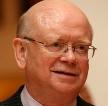Constitutional Sense: Political Nonsense
23 June 2020
A brief sensation a week or two ago was caused by the Constitutional Court ruling that independents must be allowed to stand for parliament and the provincial legislatures. The unconstitutionality of the Electoral Act was suspended for two years to give Parliament an opportunity of bringing it into line with the Constitution.
The ruling was greeted by most of the media as a tremendous step forward; gushingly described as “returning power to the people,” and destroying the grip of the “party bosses.”
That assessment, often by people who have not read the Constitution or the Electoral Act, or know little about the politics of SA, is nonsense.
My prediction is that one or two individuals might gather 50,000 or so votes and secure a seat in parliament. When they get there, they will be as powerless and devoid of real influence as the members of the host of tiny parties already there.
The so-called “party bosses” are elected to senior office in their party and they are not a malevolent bunch of nasties who are out to force the voters to vote for junk candidates. To my knowledge, and I concede there may be exceptions, most parties try to nominate candidates who will be a credit to their party, helping to win the election and do a reasonable job if elected.
Voters vote for parties because they have confidence in what the party stands for and believe that it is in their interests to support the policy direction, the promises, the record and the leaders (ie the “party bosses”) of the party.
Why on earth does anyone think that generally, self-appointed candidates will be superior to the candidates selected by political parties? I am not an expert on other parties, but I played a role in the Democratic Alliance (DA). I know how rigorous the nomination and selection process of the DA is, starting from the hundreds of hopeful aspirants responding to advertisements calling for interested persons to apply. The DA has a stringent set of criteria. Aspirants also have to pass through a screening process, an electoral college and a selection panel process. The regional and provincial structures play an oversight role before the lists are passed to the party at federal level for appeals and for final approval.
Politicians, believe it or not, are human. Sometimes mistakes are made and people are nominated and perhaps even elected but turn out to be less than desirable, or even crooks, and criminals. But the vast majority of members of all parties really do try to serve the voters and their parties to the best of their ability. There are a few who astound observers by the very modest talents they display and one wonders how on earth they managed to talk their way in. Is there any reason to believe that self-appointed candidates standing as independents will be any better?
Many commentators neglected to mention that independents have always been able to stand for local government. Despite this, the number of successful independent candidates is minuscule. Where are they in Johannesburg, Tshwane, Ekurhuleni, to name only three councils? The EFF did not manage to win a single ward and their councillors all came from the proportional vote. Independents, with far less money, organisation, helpers and public support will find it incredibly difficult to get elected.
In summary: a damp squib and certainly not a case of “power to the people.”
Douglas Gibson is a former opposition chief whip and a former ambassador to Thailand. His website is: douglasgibsonsouthafrica.com
*This article first appeared in The Star

